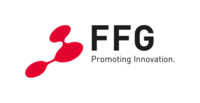Automatic generation of questions and answers for an app that companies can use to train their staff members.
Background
When people start a job, they need to learn about their new role as fast as possible. The first weeks and months of the onboarding phase determine whether employees feel welcome and understood and whether they identify with the goals of their new company. Studies have shown, that poor onboarding makes 70% of the employees leave their new job within the first year. This is costly and can erode productivity and staff morale.
Project Content and Goals
Besides the difficulties companies experience when they train their (new) employees, it is also challenging for them to stay up to date with the latest developments. Introducing new technologies on a regular basis requires companies to adapt existing modalities, procedures and rules and to educate staff members about the changes. Quickspeech offers help in this respect and intends to establish a new way of conducting in-house trainings. Content for such trainings is presented on an innovative app in an appealing and easy-to-use manner. This enables mobile learning, facilitates onboarding when people enter a company and simplifies training and upskilling of employees.
The primary aim of the present project is to explore new methods of text analysis, text synthesis (Natural Language Understanding, NLU) and text creation and use them to automatically extract questions and answers from written sources (e.g., tutorials and training documents) for the QuickSpeech App.
Methods and Research Questions
Great progress has recently been made in modelling text and language by using Deep Learning and Transformer Networks. Consequently, the automatic generation of questions and correct answers on the basis of large text sources (e.g., company handbooks) is within reach. However, it is unclear whether the mentioned methods are suitable for producing useful questions-answer pairs; especially, when the amount of training data is limited. The project team intends to clarify this question and to develop an end-to-end processing chain (pipeline) that is adaptable to the domain specific demands of the given company and capable of automatically generating questions including multiple choice answers. In cases where an automatic processing does not yield satisfactory results, manual intervention will be possible.
Results
The methods developed in this project for the first time allow to automatically generate questionnaires. Therefore, they represent a leap forward in the evolution of digital learning formats. Supplementing or even replacing classroom training by digital learning formats can solve some of the problems that occur during the onboarding processes of new staff members. On top of that, the workload of personnel developers is reduced, as learning content is generated automatically. It also helps to preserve valuable company specific know how and impart information that only becomes visible through user interactions. All this not only makes more qualified and content employees, but also saves time and cost.
You want to know more? Feel free to ask!
Head of
Media Computing Research Group
Institute of Creative\Media/Technologies
Department of Media and Digital Technologies
- QuickSpeech GmbH



